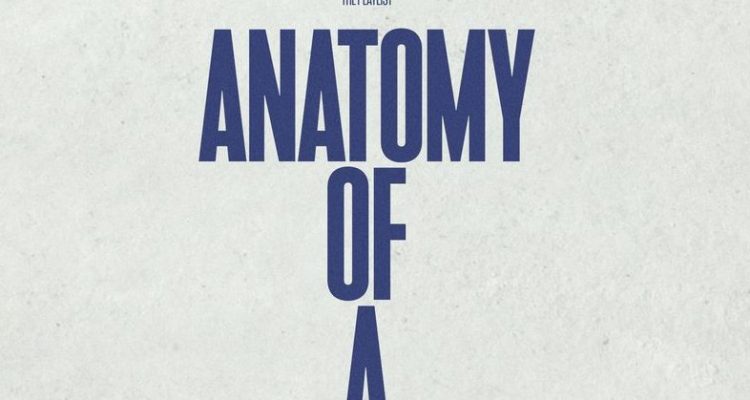After relocating to the French Alps with her son Daniel (Milo Machado Graner) and husband Samuel (Samuel Theis), celebrated German author Sandra Voyter (Sandra Hüller) finds herself at the center of an investigation into the unusual falling death of her husband.
Throughout the film, we slowly learn of the turmoil between the married couple which is subtly teased in the opening as Sandra is being interviewed about her work. What started out as an engaging conversation with laughs and wine, and hints of flirting between the female interviewer and author is interrupted by absurdly loud metal music.
Sandra’s husband chooses to blare his metal music in the attic, clearly not caring about his wife’s interview (or purposefully choosing to sabotage it). The husband has been remodeling the attic with its large window left open to the outside air. It’s through this window that Sandra’s husband takes his tragic fall.
Sandra’s son, Daniel, is the only potential witness to the tragic event but he is visually impaired. Based on the little testimony offered by Daniel and the evidence at the scene, the police investigation leads to an indictment and trial for the fate of author Sandra Voyter.
It’s at this moment that writer and director Justine Triet raises the tension and intrigue even further, delivering a captivating courtroom procedural that unravels layers upon layers of the couple’s complicated life. Triet leaves it to the audience to determine if the husband was merely unhappy and murdered, or if he was suicidal.
Sandra Hüller delivers an astounding performance, both on the stand in court and during the flashbacks to her troubled life with Samuel Theis portraying her husband.
Hüller’s scenes with Milo Machado Graner are rich with layers as well… is this a mother manipulating her son to free herself from the reality of a prison sentence? Or is she only concerned for her child’s well-being?
Graner’s performance as Daniel is incredibly believable and painful to observe. In court, he testifies that his father was preparing him for his ultimate suicide, and that he finally understands this based on a conversation about their dog.
Or at least that’s what Daniel says in court… perhaps to save his mother. The prior conversation with the mother and son took place in their home and ended with Daniel asking his mother to depart through the court appointed guardian.
Hüller’s crying performance in the back seat of the car as she leaves Daniel made me believe that this mother assumed her son would turn her in and deliver new evidence in the case to lean it toward murder.
Anatomy of a Fall is a brilliantly ambiguous autopsy on this complex relationship, with audio recordings of the couple bickering played in court, outside of context as Sandra Voyter claims. One key point of discover is that she may have lifted material from her husband in one of her early works that became her biggest success. The layers of resentment and unhappiness could lead one to believe that murder was indeed enacted at the peak of her frustrations.
The film remains thrilling until the final moment, thanks to the writing, direction, and a rich cast of performers that includes the prosecution and her defense attorney. As we try to decipher the soul of this woman, Anatomy of a Fall resonates as one of the year’s best films and an outstanding piece of storytelling. The script written by director Justine Triet and co-writer Arthur Harari is one of the strongest in years, relying on the bare bones of plotting and dialogue to achieve this masterful result.
Letter Grade: A


